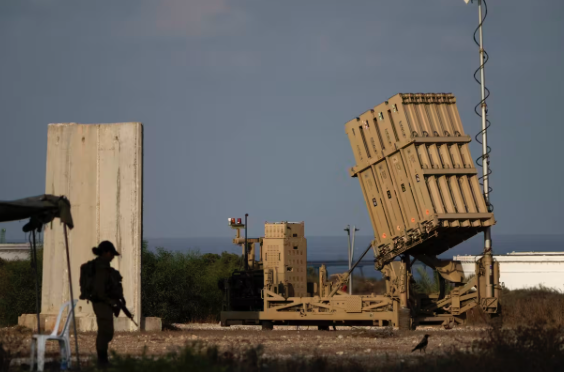Iran’s weekend attack permanently altered the strategic picture in the Middle East. For 45 years the two countries engaged in a “shadow war” via proxies, covert operations and clandestine missions. Now they are in open conflict. A range of previously unlikely scenarios, from a complete regional meltdown to a new Israeli-Arab alliance, have become possible.
The shadow war’s great benefit to both sides was that it preserved plausible deniability. Anything that provoked a direct conflagration could have wildly unpredictable consequences. But both Iran and Israel became too successful at waging shadow war. Iran sponsors Hamas, which on Oct. 7 invaded 22 Israeli villages and murdered 1,200. This “success” shifted Israel from a defensive to an offensive posture. Where the Israelis had engaged in limited surgical battles with Hamas, they now sought to defeat it completely. The Israel Defense Forces didn’t simply subdue Gaza City and Khan Younis; they destroyed them.
In December, Israel extended this offensive posture to Hezbollah, Iran’s senior proxy in the region. After two months of low-intensity fighting, the IDF began to rout Hezbollah’s forces in southern Lebanon. The two sides exchanged moderate rocket and missile fire as before, but Israeli defense sources tell me that more than 90% of Hezbollah’s special Radwan fighters have fled southern Lebanon, and that Israel has destroyed almost all the group’s border lookout posts.
As the war evolved, Israeli leaders grew frustrated by Iran’s ability to dictate events without consequences. In December, Israel killed Sayyed Reza Mousavi, a senior Iranian commander, in an airstrike near Damascus. To avoid Iranian retaliation, the IDF didn’t take public credit. Rather than respond directly, Supreme Leader Ayatollah Ali Khamenei responded covertly through terror plots to kill Jews in Asia, Europe and elsewhere. He may also have realized that losing Mousavi was a price worth paying for the harm Iran already inflicted on Israel.
On April 1, Israel moved again, killing senior Quds Force commander Mohammad Reza Zahedi with a precision strike at an Iranian diplomatic building in Damascus. This time Mr. Khamenei felt compelled to respond directly. He no longer cared to save face. He wanted blood.
Two weeks later Iran launched its attack. The barrage failed, but it wasn’t meant to fail, as some say. It was intended to kill hundreds of Israelis and to destroy critical Israeli air bases. The Arrow missile-defense system performed better than anyone expected and brought down in the empty desert nearly all of the long-range munitions Iran had hoped would land in Israeli cities. The vaunted and much-discussed Iron Dome was irrelevant. The Arrow, which had barely been tested, saved the day.
Iran’s attack ended the shadow war. The old rules no longer apply. Israel has said it will respond, and it must if it hopes to restore deterrence. But if the response is too light, Israel risks inviting future waves of drones and ballistic missiles. Then again, if Israel attacks too aggressively, it risks greater retaliation from both Iran and Hezbollah. To date Hezbollah has used up only around 3,000 rockets and missiles out of an estimated arsenal of 150,000.
The U.S. and Israel’s European allies are pressing Israel not to counterstrike. President Biden considers a wider regional war to be a threat to his re-election. On the flip side, Iran’s attack shocked the Saudis out of their complacency—they “outed” themselves publicly as having assisted Israel against Iran. Riyadh and Washington have both made noises about a grand normalization deal with Israel, and Mr. Biden may still exit the current chaos with his own “deal of the century” going down the electoral home stretch.
These are unusually dangerous and potentially auspicious times. The U.S. and Israel need to play their cards perfectly.
Mr. Bob is senior military analyst for the Jerusalem Post and a co-author of “Target Tehran: How Israel Is Using Sabotage, Cyberwarfare, Assassination—and Secret Diplomacy—to Stop a Nuclear Iran and Create a New Middle East.”


